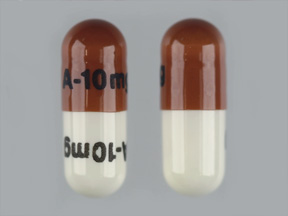Soriatane and Alcohol/Food Interactions
There are 4 alcohol/food/lifestyle interactions with Soriatane (acitretin).
Alcohol (Ethanol) Acitretin
Major Drug Interaction
Using ethanol (alcohol) and acitretin is not recommended. Women should not drink any alcoholic beverages while taking acitretin or for 2 months after stopping treatment. Alcoholic beverages increase the risk for birth defects while taking acitretin. Acitretin can cause severe, life-threatening birth defects if the mother takes the medication during pregnancy. Never use acitretin if you are pregnant. Both a primary and a secondary form of birth control must be used together and for at least 3 years after stopping therapy. Talk with your doctor about other possible birth control methods while you are taking acitretin. It is important to tell your doctor about all other medications you use, including vitamins and herbs. Do not stop using any medications without first talking to your doctor.
Acitretin Food/Lifestyle
Major Food Interaction
Take acitretin with food. Women must avoid all drinks, food, and medicines (including over-the-counter products) that contain alcohol while taking acitretin or for 2 months after stopping treatment. Alcoholic beverages increase the risk for birth defects while taking acitretin. Acitretin can cause severe, life-threatening birth defects if the mother takes the medication during pregnancy. Never use acitretin if you are pregnant. Both a primary and a secondary form of birth control must be used together and for at least 3 years after stopping therapy. Talk with your doctor about other possible birth control methods while you are taking acitretin. It is important that you tell your healthcare provider about all other medications that you are using including vitamins and herbs. Do not stop using your medications without first talking to your doctor.
Switch to professional interaction data
Acitretin High Cholesterol (Hyperlipoproteinemia, Hypertriglyceridemia, Sitosterolemia)
Major Potential Hazard, Moderate plausibility
acitretin - hyperlipidemia
Acitretin is contraindicated in patients with chronic abnormally elevated blood lipid values. It is recommended to evaluate lipid status in patients before initiation of therapy and periodically until the lipid response to the drug is established. Care should be taken in subjects with an increased tendency to develop hypertriglyceridemia included those with disturbances of lipid metabolism, obesity, or a familial history of these conditions. Serum lipids must be more closely monitored in high-risk patients and during long-term treatment with acitretin. Dietary modifications, reduction in dose of acitretin, or drug therapy should be employed to control significant elevations of triglycerides, and if hypertriglyceridemia and low HDL levels persist, discontinuation of acitretin should be considered.
Acitretin Obesity
Major Potential Hazard, Moderate plausibility
acitretin - hyperlipidemia
Acitretin is contraindicated in patients with chronic abnormally elevated blood lipid values. It is recommended to evaluate lipid status in patients before initiation of therapy and periodically until the lipid response to the drug is established. Care should be taken in subjects with an increased tendency to develop hypertriglyceridemia included those with disturbances of lipid metabolism, obesity, or a familial history of these conditions. Serum lipids must be more closely monitored in high-risk patients and during long-term treatment with acitretin. Dietary modifications, reduction in dose of acitretin, or drug therapy should be employed to control significant elevations of triglycerides, and if hypertriglyceridemia and low HDL levels persist, discontinuation of acitretin should be considered.
Switch to professional interaction data
Soriatane drug interactions
There are 67 drug interactions with Soriatane (acitretin).
Soriatane disease interactions
There are 9 disease interactions with Soriatane (acitretin) which include:
- hyperlipidemia
- liver disease
- renal dysfunction
- intracranial hypertension
- psychiatric disorders
- alcoholism
- diabetes
- ophthalmologic effects
- liver disease
More about Soriatane (acitretin)
- Soriatane consumer information
- Check interactions
- Compare alternatives
- Reviews (8)
- Drug images
- Side effects
- Dosage information
- During pregnancy
- Drug class: antipsoriatics
- Breastfeeding
Related treatment guides
Drug Interaction Classification
| Highly clinically significant. Avoid combinations; the risk of the interaction outweighs the benefit. | |
| Moderately clinically significant. Usually avoid combinations; use it only under special circumstances. | |
| Minimally clinically significant. Minimize risk; assess risk and consider an alternative drug, take steps to circumvent the interaction risk and/or institute a monitoring plan. | |
| No interaction information available. |
See also:
Further information
Always consult your healthcare provider to ensure the information displayed on this page applies to your personal circumstances.


